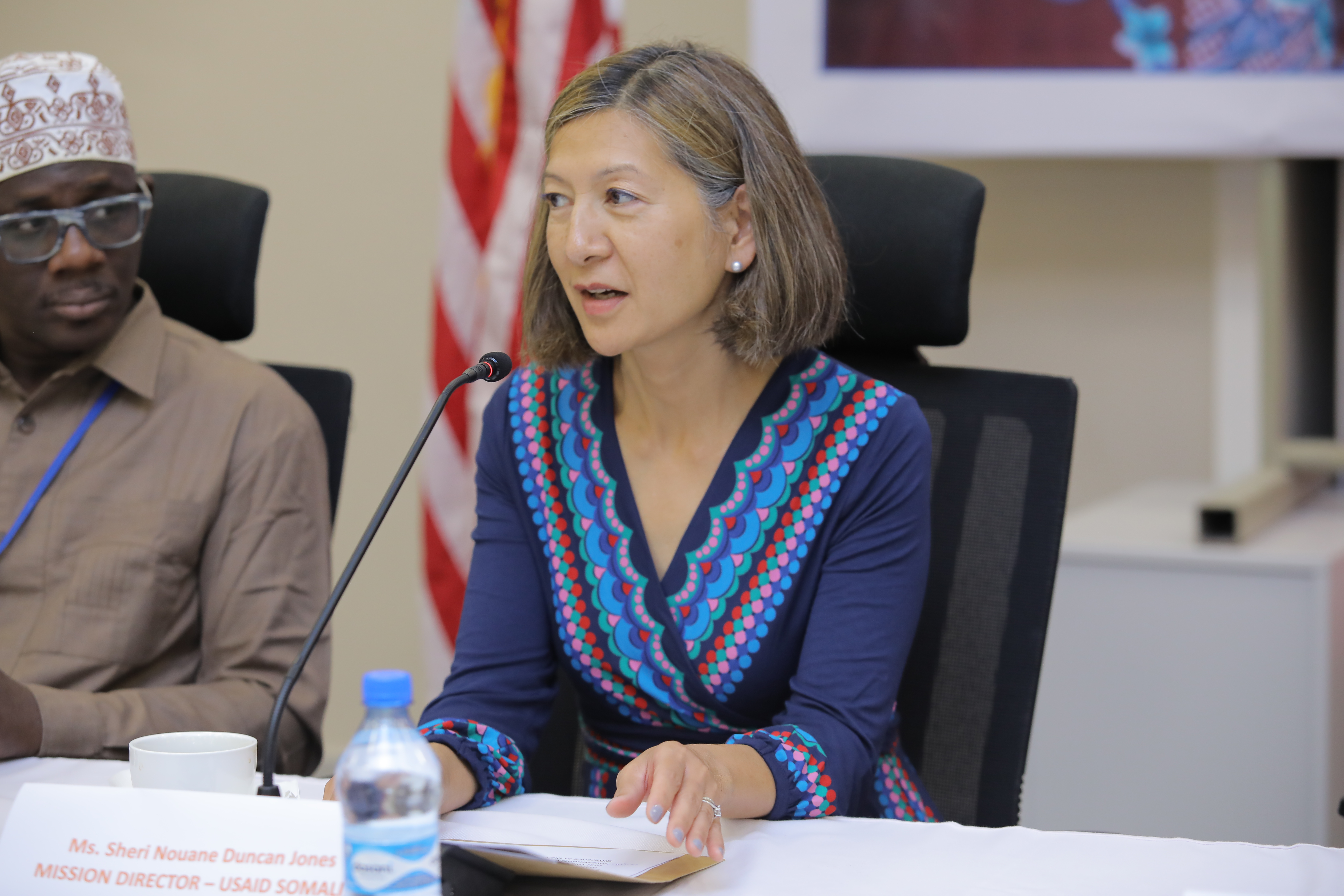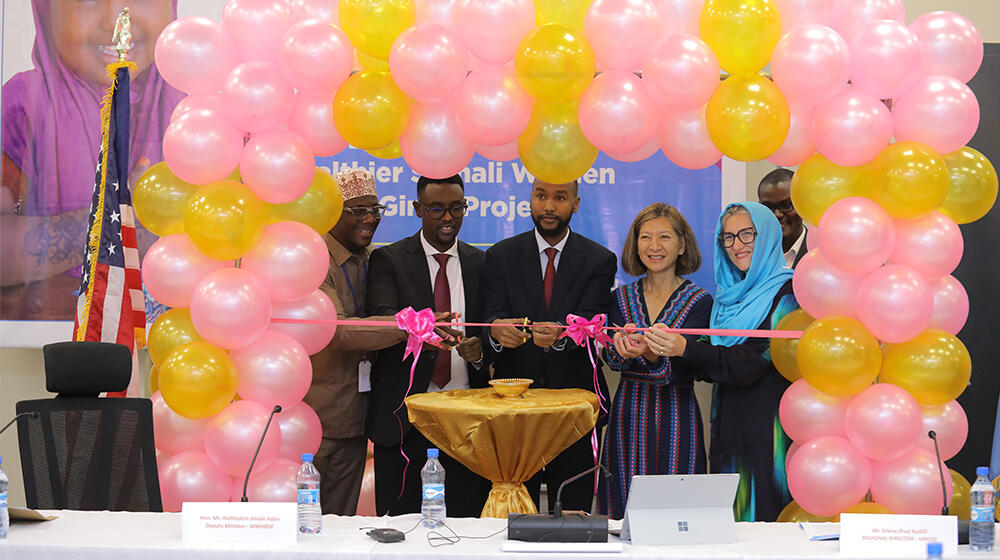October 11, 2023, Mogadishu, Somalia -Top officials from the country offices of the United Nations Population Fund (UNFPA), the United Nations Children's Fund (UNICEF), the Federal Government of Somalia, and the United States Agency for International Development (USAID) joined efforts today to commemorate the International Day of the Girl Child. The event was designed to amplify the rights and potential of Somali girls, emphasizing their importance and the need to empower them.
The high-level event convened over 200 participants in Mogadishu, including government leaders, UN representatives, youth activists, civil society groups, community elders, journalists, and development partners.
In opening remarks, Deputy Minister Abdihakim Jimale Aden reiterated the government’s strong commitment to tackling persistent human rights issues like child marriage, female genital mutilation (FGM), and lack of educational access that continue to severely impact Somali girls. “We must proactively create an environment where every girl has a fair chance to learn, grow, and achieve her dreams free from discrimination and harm,” he emphasized.
In his remarks at the occasion, UNFPA Somalia Representative Niyi Ojuolape called for increased multi-sectoral collaboration and investment to break long-standing cycles of gender inequality. Reiterating the community-wide and positive national impact of empowering the girl child, Ojuolape stated that “an empowered girl lifts her entire community, but can only do so by having access to health services, education and related opportunities. It is not only the morally right thing to do but also a pragmatic economic decision that aids national development,” he added.
The event also marked the official launch of an innovative new project aimed at improving women and girls’ access to quality maternal and newborn healthcare across Somalia. The $2.7 million “Healthier Somali Women and Girls” project, funded by USAID and implemented by UNFPA, will strengthen maternal and child health services in marginalized communities of Southern and Central regions of Somalia.
“With targeted investments and interventions, we can make a real difference in the lives of Somali women, newborns and infants.”emphasized USAID Mission Director Sheri-Nouane Duncan-Jones in her remarks.

Further, UNICEF Somalia Representative Wafaa Abdelatef, in her statement at the event, noted that “We cannot make progress without listening directly to girls themselves, to understand their lived realities, hopes and ideas for positive change,” while urging for a more participatory approach in addressing the well-being of women and girls.
A highlight of the event was an inter-generational panel discussion between young women and activists, government officials, UN representatives and civil society members focused on strategies to expand girls’ rights and opportunities in Somalia. Youth advocates shared personal stories of helping prevent child marriage and female genital mutilation in their communities, highlighting the importance of support networks. Broadly, the panelists spoke on the need for effective mentorships to end harmful practices and veritable platforms that allow young people to lend their voices to the advocacy.
With rousing cultural performances and urgent calls to action, the event succeeded in spotlighting the need to dramatically scale up targeted investments in the health, education, protection, and empowerment of Somali girls to unlock their enormous potential and catalyze national progress.


